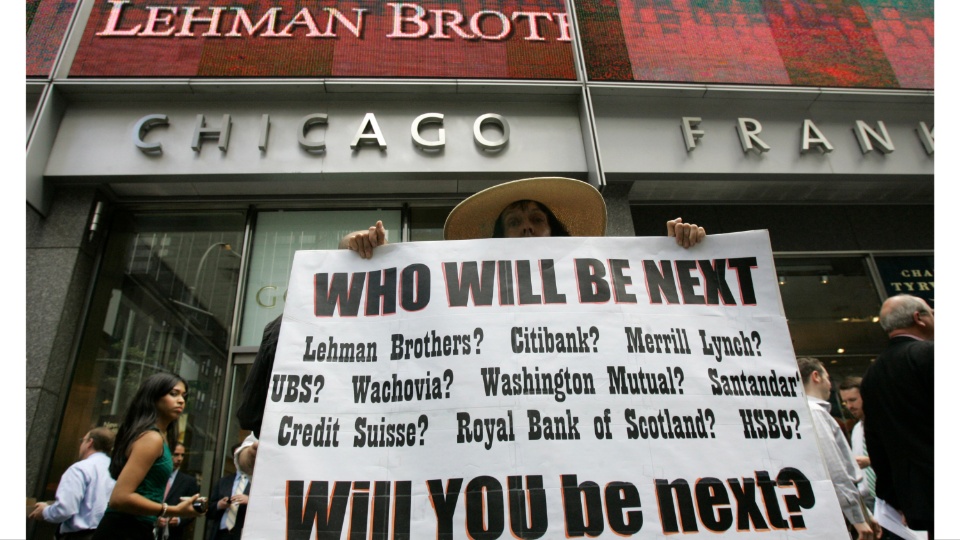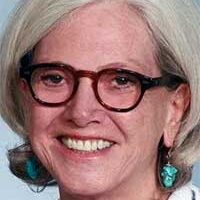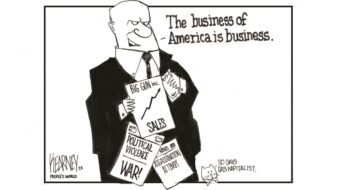
It’s been 15 years since the collapse of Lehman Brothers. The investment firm’s startling downfall marked the beginning of a historic Wall Street crash that swiftly wiped out over $7 trillion in home equity and $2.8 trillion in retirement portfolios.
Wall Street hasn’t fundamentally changed its behavior. Since then, Big Finance has engineered an even more entrenched system of creating wealth mostly for the ultra-rich while spinning out crisis after crisis for the rest of us.
That system has led to insecure, low-wage contract jobs replacing stable work, staggering debt mounting for college graduates, and monopolies crushing family businesses. It’s entrenched in a political system captured by billionaires and corporations and left society struggling to meet the challenge of climate change.
This anniversary is an opportunity to take a step back and look at the overarching problem here: “financialization.” While we used to have an economy that manufactured stuff, now it manufactures debt.
Before 2008, big banks financialized mortgages. Now they’re financializing houses, buying up single family homes and charging high rents, scrimping on maintenance, and pursuing aggressive evictions.
The same is happening from health care to the local news, as private equity firms buy up vital businesses, cut staff and services to pad profits, and then sell their assets for scrap when the businesses predictably fail.
The latest Wall Street game is to turn the planet into a new asset class, creating “natural asset companies” to monetize “ecosystem services” from water, forests, coral reefs, and farms.
What drives financialization is what I call “wealth supremacy”—a bias ingrained in our economic system that tells us wealthy people matter most. It suggests the core aim of our economy should be delivering ever-increasing gains to their investment portfolios.
This bias is embodied in a series of myths. There’s the myth that no amount of wealth is ever enough. Another is that only shareholders and executives should have a say in corporations, while workers are disenfranchised and dispossessed.
Then there’s the myth of the free market, which tells us corporations and capital must be able to move freely throughout the world, while the freedom of people—democracy—must be subordinated.
Recognizing wealth supremacy helps us see our task: to build an economic system designed not for maximum investment returns, but for life to flourish. My organization, the Democracy Collaborative, calls it a “democratic economy”—and it’s rising all around us.
For starters, corporations don’t have to be owned by shareholders or executives. They can be owned by workers themselves.
Already workers in the U.S. own some 6,000 companies. Employees at worker-owned companies like the New York City-based Cooperative Home Care Associates and the San Francisco-based waste disposal and recycling company Recology enjoy more stable jobs and double the retirement savings of employees at conventional firms.
Nor do big banks need to do all the banking.
Roughly 1,000 community development financial institutions provide fair loans to marginalized communities typically shunned by Wall Street banks. For example, River City Credit Union in San Antonio, Texas, helps immigrants set up bank accounts so they don’t have to rely on predatory payday lenders and check-cashing storefronts.
And what if more of us owned our utilities?
Eighty-five percent of Americans already get their water from public utilities instead of for-profit companies. Now there’s a growing movement from Ann Arbor, Michigan, to Maine and New York for publicly and cooperatively owned energy utilities. Such companies could be more willing than for-profit utilities to transition quickly from fossil fuels and make investments to prevent sparking wildfires.
The models and pathways we need exist around us. But making the rapid, systemic change we need requires letting go of the myth that wealth-maximizing capitalism is the only system possible.
It’s not. And if we want to keep our society standing, we need to topple wealth supremacy.
Institute for Policy Studies / OtherWords












Comments